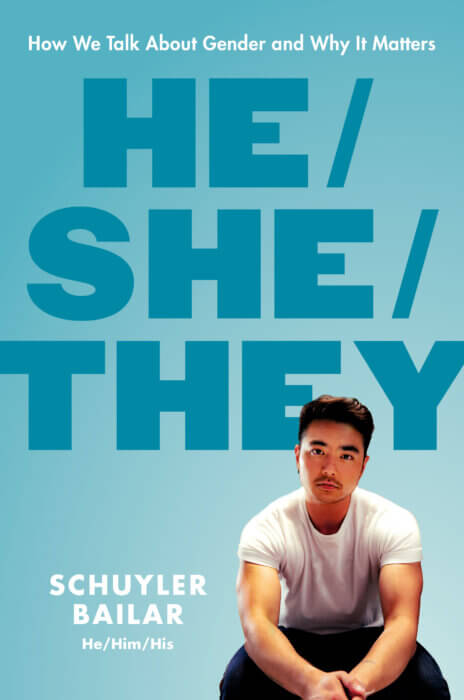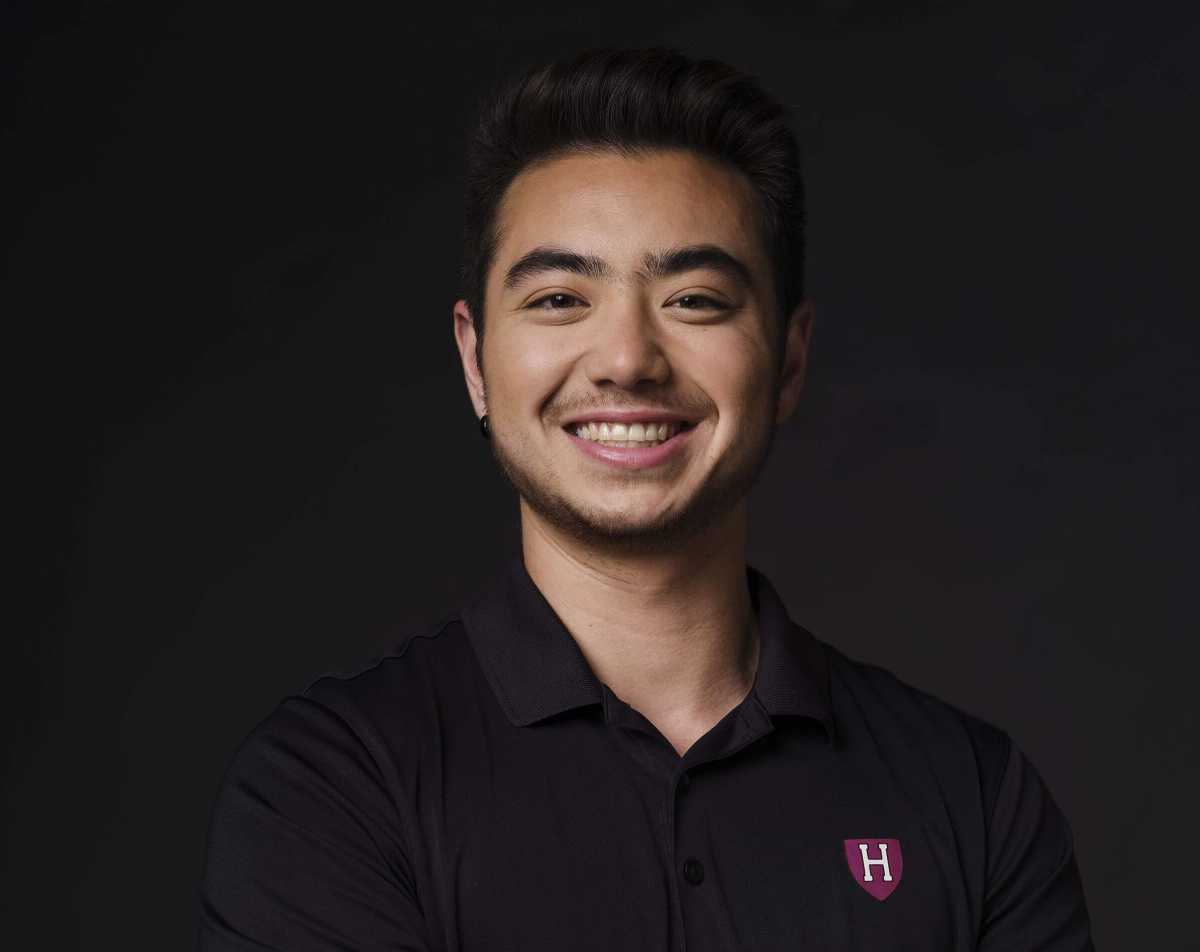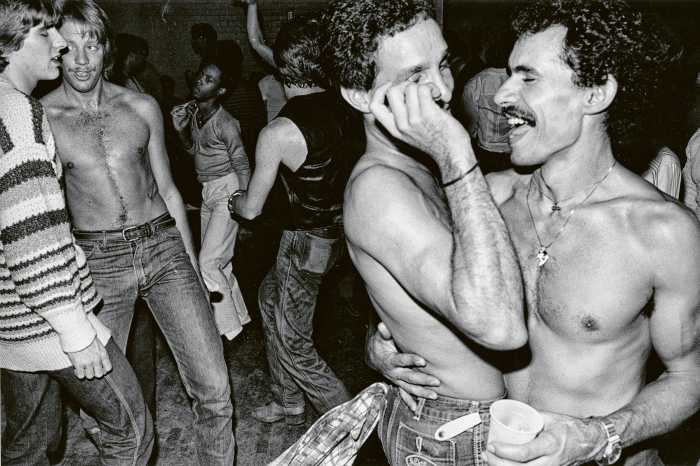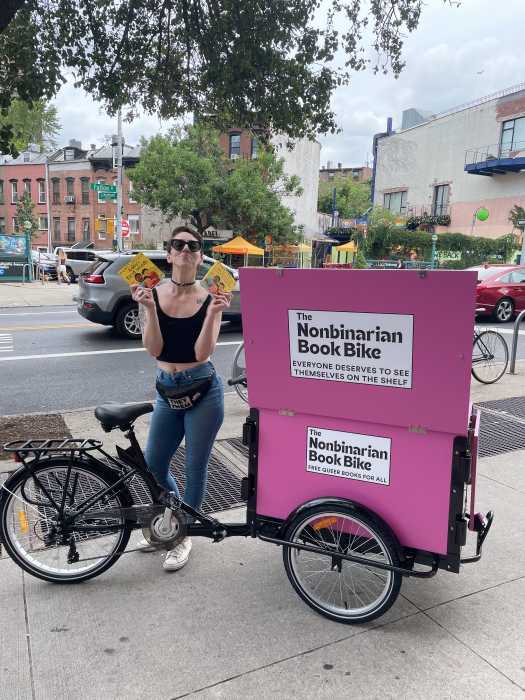“He/She/They: How We Talk About Gender And Why It Matters,” a new book by trans athlete, educator, and advocate Schuyler Bailar, comes out in stores on Tuesday, October 17. The book aims to provide readers with a comprehensive framework to better understand gender and the trans community as a whole.
Bailar became the first trans man to compete in any NCAA Division I men’s team when he joined Harvard University’s swim team in 2015. For the past eight years he has traveled the country, leading workshops and speaking on panels about the trans community, with the intention of creating a more inclusive society.
“He/She/They” is Bailar’s second title; the first, “Obie Is Man Enough,” is a coming-of-age novel about a trans swimmer. In his latest book, Bailar dives deep into detailed definitions of terms like transness, cisgender, non-binary, gender expression, and more, interwoven with stories from his past as a swimmer, an educator, and more.
In an interview before the launch of “He/She/They,” Bailar told Gay City News the information he’s imparting in it — to allies and trans people alike — is more urgent than ever; according to the ACLU there have been at least 501 anti-LGBTQ bills introduced or voted on in state legislatures in 2023. Bailar said he hopes his book will invite everyone into an inclusive discussion around gender identity.
Gay City News’ interview with Bailar has been edited for length and clarity.
What was your inspiration to write “He/She/They” as your second book, and why was it important to write it now?
I’ve been doing education work for over eight years now and have found that so many people don’t know what they’re talking about when we start talking about trans people [or] gender. A lot of people really want to be allies but they don’t have the words, they don’t have the context. So the inspiration for this book is an accumulation of need and desire to write a book that will help people engage in this conversation.
Why now? I think there’s no better time given the anti LGBTQ+ sentiments in the country, specifically anti-trans sentiments. There’s so much misinformation that’s been perpetrated about our community, and my hope is that this book can help attenuate that a bit.
Who is the book’s intended audience? Is it intended for allies, for trans people, or for both?
I wrote it as a guide to invite people who don’t feel like they have the framework to have this conversation, and that largely means for people who are not also trans.
But I know through the work that I’ve done, that the resources [in] “He/She/They” [are also important] for other trans people because every person who holds an identity is not an expert in defending that same identity. So simply knowing your identity doesn’t mean that you can fight for that identity in the way that maybe you want to.

Throughout “He/She/They” you include many stories and anecdotes from workshops you have done across the country, where you met people who didn’t possess the correct terminology to talk about transness. So how can we get the information in your book to people who might not be immediately ready to engage with it?
I want the book to be for anybody who’s willing to enter the conversation. And then the goal is to equip that person with the tools to go talk to somebody else who wouldn’t pick up the book. And I think that is where the real allyship begins, when we start having conversations with people who wouldn’t show up at any of my trainings or workshops. The people who pick up the book hopefully have contact with those kinds of people. Most people do.
My hope is that “He/She/They” can give people the resources to have those conversations. One of the final chapters is about allyship. I provide very specific frameworks and tools to have conversations, to investigate ourselves, to deal with bias and invite people in. So I think there’s lots of helpful tools and tips and tricks, if you will, there.
The chapters begin with personal stories from your past. Why did you feel it was important to include those stories, rather than writing “He/She/They” as a purely explanatory guidebook?
In all the work that I do in my educational workshops I begin with storytelling. It is really important to me to situate these stories in humanity first. I think if we don’t, we lose the point. I can sit here and tell people the right words, I can try to explain that science supports the existence of trans people. That’s in the book too, but I think people struggle to understand why they should care if they don’t start with a person they care about.
I do think storytelling is a really powerful way to invite somebody into a conversation because it says hey, I’m a human and you’re a human, let’s dive in together. We all do have humanity in common. You might not have met a trans person before, but you have felt alone, you have felt sad, [or] like you didn’t feel like you fit in at some point. Anybody has felt these things at some point in their lives.
What was it like for you going back over those memories from your childhood and from your past eight years as an educator?
It was hard, harder than I expected, actually, because I’ve been doing this for a while and I tell my story very publicly. But writing some of the stories down in a way that I hadn’t done reminded me of a lot of difficult things I’ve gone through.
I wanted to share some things that I hadn’t previously shared, and I wanted to reflect on some things that I hadn’t previously reflected on, most specifically my experiences on the men’s team.
I’m an avid journaler so I have very detailed journals from all of my years in high school and college. So as I was trying to find little anecdotes that I wanted to bring in, I was re-reading my journals, and it was really evident how difficult that time was for me. It was painful to remember some pieces of it, but I was grateful for the process because I haven’t had a moment to really pause and think about what my experience was like back then, so there is a bit of a healing process to writing those pieces.
You write in “He/She/They” that gender is a human experience, not a trans one. Could you talk more about what you meant by that?
A comment I once received was “I’m not going to date no girl with no pronouns.” This person was saying that he was “super straight.” He said he wouldn’t date somebody who had pronouns, which is just ridiculous because everybody uses pronouns, right? Pronouns are not a trans specific thing. “We” is a pronoun, “us” is a pronoun, “he,” “she,” “ they” are all pronouns. So I think there’s this conception that discussion of gender, especially critical thought about gender, is somehow a trans specific experience as opposed to a human [one].
I want people to recognize when they’re reading “He/She/They” that they too have a gender regardless of whether or not they’re trans. I have met so many people who are not trans, who have felt oppressed by the system of gender in this country, whether that be feeling too masculine or or too feminine. We’ve all felt those sorts of pressures to be ourselves a certain way and when we think about liberation from that gender binary that includes everybody. I want everybody to understand that all of the attacks on trans people are going to affect — and are affecting — everybody because of the universality of this experience of gender.
I try to make it very clear in the book, all of the oppression we’re experiencing is rooted in patriarchal violence, also intertwined with racism, specifically anti-Blackness. When you think about that, all of the anti-trans stuff, yes, it’s anti-trans, but it’s also anti-autonomy, anti self-determination, anti- just identity.
So I think when we think about the fight for reproductive justice, the fight against racism, all of these fights are the same fight. If we don’t see that we’re missing the big picture and a lot of people right now are missing the big picture.
In the past eight years that you have been an educator, have you noticed any progress in society’s perception of trans people?
There has been regression and there has been progress. More people know the word transgender now and are aware of who and what a trans person is.
I think a lot of people know the word, but they don’t know what it means, which is why I wrote the book in many ways. I just think that we’re really divided. There’s so many more resources now than there were when I was in high school, for example, but there’s also a lot more misinformation and disinformation. That’s why I wrote the book, because people really need to interface with truth and with research and with facts, especially in this time where there is such polarization of our identities.
How long did it take you to write the book and when did you first start writing? Did you notice any changes during that period?
One could argue that I’ve been working on it my whole life. But … the bulk of it I wrote in September of last year. I sat down and I wrote furiously for a month, and then spent various week-long stints from January to June editing it.
There was one specific thing that I had to edit consistently, in the first couple of pages, about how many anti-trans bills had been passed. Every single time I edited I had to add to that. [And after] all the drag bans began to be passed, I had to add a line about that as well. I think it goes to show how relentless the attacks are, and the lengths that people are willing to go to preserve the power they think they have, because that’s really what all this is about. It’s about power.
Any final takeaways?
I really want to reinforce that this book is about opening your mind to understanding yourself as much as it is about opening your mind and understanding trans people and gender. I think that so many people have not had to ask themselves, who am I? Especially with regard to gender. I think it’s a blessing to be able to investigate ourselves, interrogate, understand, [and] be curious about our identities.
Schuyler Bailar will celebrate the launch of “He/She/They” at Greenlight Bookstore in Brooklyn on Wednesday, October 17 at 7:30 p.m. Get tickets and find more information here.

































